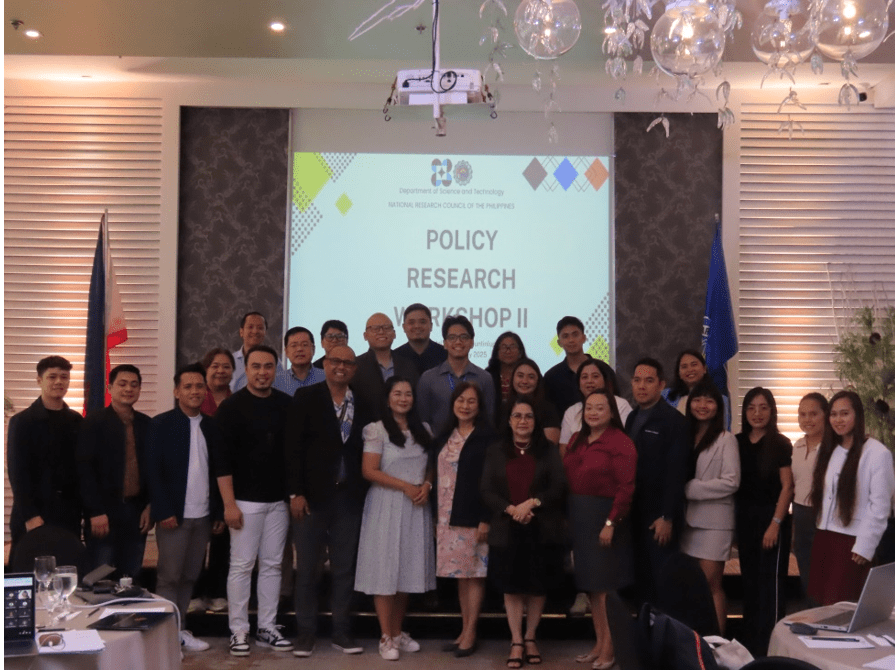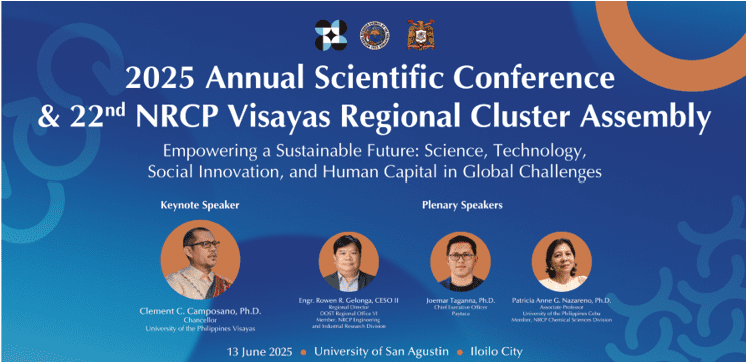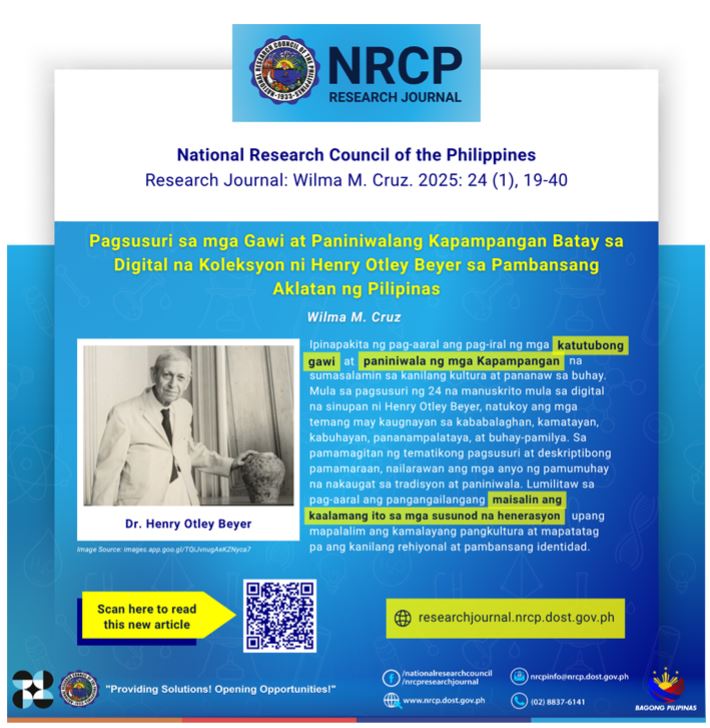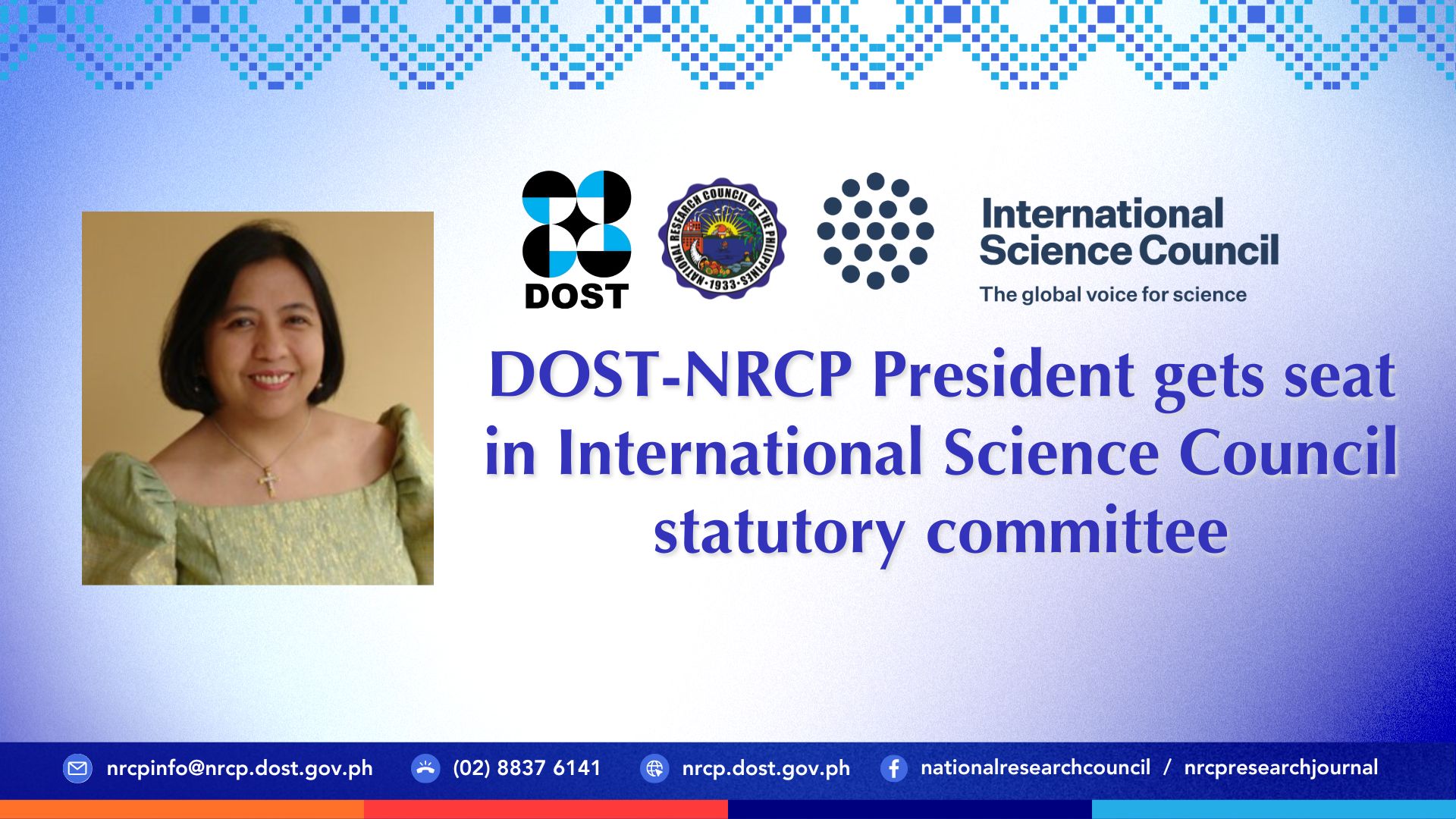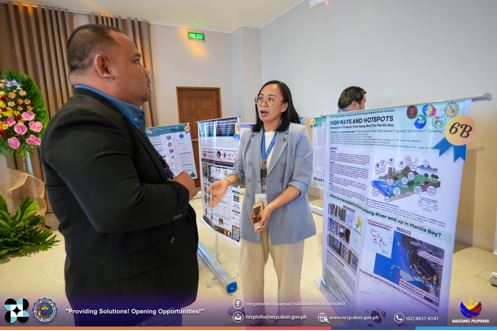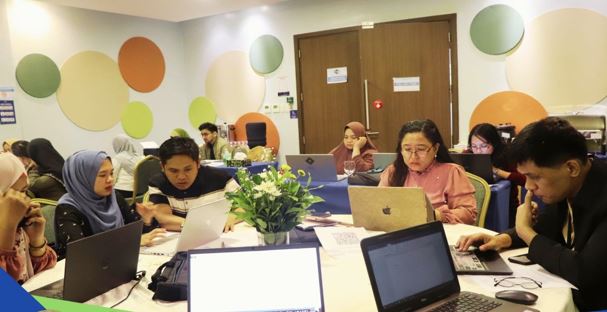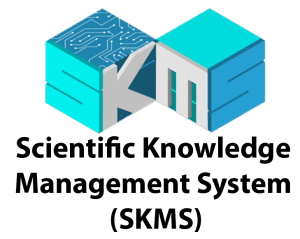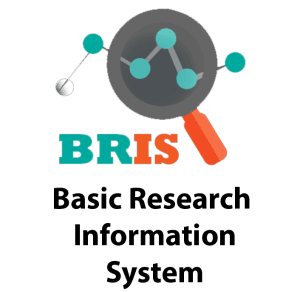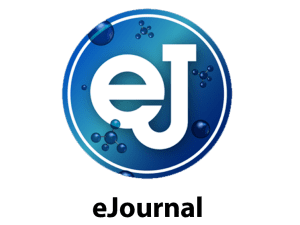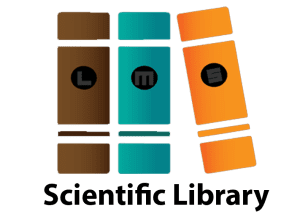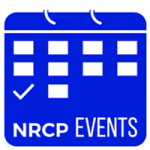DOST-NRCP Refines Research-to-Policy Program Through Assessment, Strategic Reframing
The Department of Science and Technology-National Research Council of the Philippines (DOST-NRCP) continues to strengthen its Research-to-Policy Program (R2P) through comprehensive assessment and strategic reframing to attain a more streamlined and efficient research-to-policy project management and translation process.
This year, the Council formally institutionalized its Research-to-Policy Program (R2P) to enhance its support for legislation and policymaking. Guided by its enabling charter, Act 4120 as amended, this program aims to achieve two key objectives, advancing multidisciplinary scientific research to drive national development and strengthening NRCP’s role as a strategic advisory body for government policymakers.
The R2P under the Grants-In-Aid Program has broadened its scope to further enhance its services and impact. Previously limited to requests from Congress and LGUs, the program now caters to all government branches, departments, agencies, instrumentalities, and commissions. This expansion aligns with the comprehensive definition of the ‘Government of the Republic of the Philippines’ as outlined in Executive Order 292, Introductory Provisions, Section 2, paragraph 1. This ensures that a wider range of stakeholders can benefit from the program’s research-to-policy initiatives.
Assessing the Program: A Review of 2019-2024 Policy Research Projects
NRCP organized a case conference under the NRCP Policy Research Program, which included a series of workshops held at the Vivere Hotel in Alabang, Muntinlupa City on February 13-14, 2025.
The two-day event provided an avenue for the assessment of past research efforts and the identification of means to maximize the effective translation of its research projects into actionable policies.
Between 2019 and 2024, NRCP funded 40 policy research projects. Of those, 26 have been completed and classified into three Policy Readiness Levels (PRLs). Completed projects belonging to PRL 3 produced policy outputs that have been accepted by the requesting party and/or beneficiaries and been utilized for policy purposes. Meanwhile, PRL 2 projects are those with policy outputs that have been presented to the requesting party or to the beneficiaries but have not been utilized for policy purposes. Lastly, PRL 1 projects have policy recommendations and/or outputs but are not yet presented to nor utilized by the requesting parties or beneficiaries. The Policy Readiness Level is a crucial tool for evaluating the maturity, feasibility, and preparedness of a policy for implementation.
Among the completed projects, three (3) were able to successfully influence policymaking at both national and local government levels. These research initiatives focused on critical areas such as access to healthcare, biodiversity conservation, and environmental assessment. Specifically, these projects were successfully translated into policies and utilized: 1) Access to Primary Care Facilities and Services of Government Employees and Their Immediate Family; 2) Species Richness, Assessment, and Conservation of Vascular Flora in Mt. Agad-Agad, Lanao del Norte; and 3) Diversity and Assessment of Fauna in Mt. Agad-Agad, Lanao del Norte.
To ensure that policy research projects achieve their intended outcomes, NRCP conducted a thorough evaluation of its research processes, programs, and projects. The Council’s three divisions—the Research Development and Management Division (RDMD), Finance and Administrative Division (FAD), and Research Information Dissemination Division (RIDD), led the assessment with guidance from academic stakeholders.
The assessment results highlighted the need to refine the Council’s current approaches.
Dr. Maria Lourdes G. Rebullida, an academic stakeholder member and workshop facilitator, emphasized that with this, the Council will be able to assist more research projects reach Policy Readiness Level 3. It will also aid in developing measurable strategies to enhance research policy readiness and utilization.
Panelists during the workshop are Dr. Ramon Christian Eusebio (Division VII Chair), Dr. Jose Wendell Capili (Member-at-Large), Dr. Maria Ela Atienza (Div. VIII Chair) represented by Asst. Prof. Clarinda Berja (Regular Member, Division VIII), Dr. Rochelle Irene Lucas (Div. I Chair) represented by Dr. Genevieve Pillar (Assoc. Member, Division I).
NRCP Governing Board members, division representatives, and key stakeholders participated in the case conference.
The conference, which included a series of workshops, was a continuation of a foundational workshop held in October 2024. This earlier workshop updated participants on NRCP’s mandates and future directions while also providing crucial knowledge on policy research, the legislative process, and effective monitoring and evaluation strategies.
Future Directions for Enhancing the R2P for Greater Impact
Key recommendations from the discussions and workshops emphasized the need to: 1) address operational challenges; 2) align the program more closely with national priorities; 3) integrate research efforts with the wider government policy-making process; 4) strengthen linkages for agenda-setting, advocacy, translation, dissemination, and monitoring and evaluation of policy outcomes.
As NRCP approaches its 100th anniversary as an advisory and consultative body, its leadership recognizes the need to strategically position the Council to meet the increasing demand for policy support.
NRCP President, Dr. Aimee Lynn A. Barrion-Dupo, stressed the importance of strengthening the research-to-policy framework to ensure it effectively contributes to national development.
“Our goal is to reinforce NRCP’s advisory function and enhance our capacity to support the legislature, government agencies, and stakeholders,” she stated.
NRCP Executive Director, Dr. Bernardo N. Sepeda, emphasized the need for continuous improvement.
“We are committed to scaling up our efforts to ensure that more policy research projects reach a level where they can be effectively utilized. By refining our processes and building stronger partnerships, we can maximize the impact of our research outcomes,” he shared.
Additionally, Dr. Rebullida highlighted the significance of long-term planning.
“The institutionalization of the Research-to-Policy Program is a significant step for the Council. However, we must continue refining our strategies to bridge the gap between research and policymaking. With the right approach, we can ensure that NRCP’s research outputs contribute meaningfully to policy development and national progress,” she stated. (Rose D. Dagupen, S&T Media Service)
